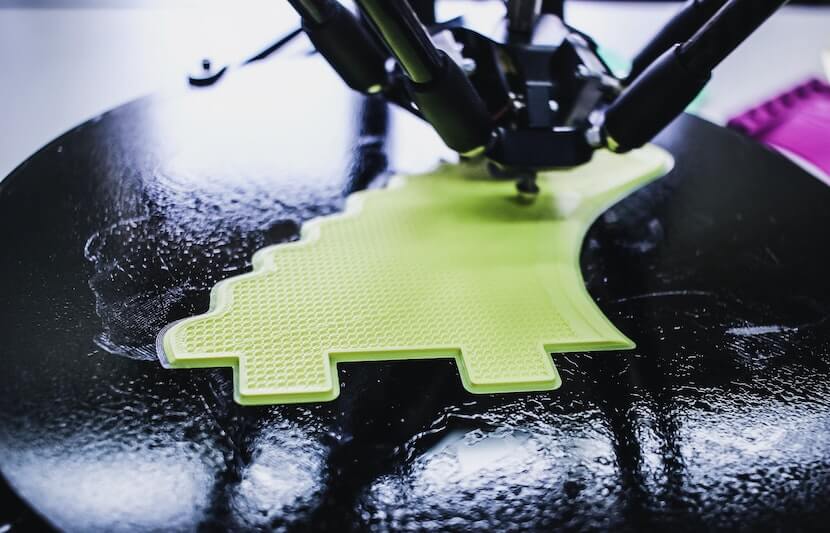A team of researchers from the University of Minnesota has developed a technology to print custom electronics and cells directly onto the skin using a portable and lightweight 3D printer that costs less than $400.
The new technology is a potential breakthrough in both 3D printing and wearable electronics, and could be applied in a variety of fields, from the military to medical care.
The research is published in the journal Advanced Materials.
The technology
Whereas conventional 3D printers can only print onto static, flat surfaces, the new 3D printing technique can print directly electronics and cells with arbitrary shapes onto moving surfaces, said Zhijie Zhu, a doctoral candidate at the University of Minnesota and a member of the research team that developed the new technology.
The printer tracks movement using temporary markers placed strategically on the surface. The sensors are scanned, providing the computer with a spatial map of the surface. Then, using a computer vision system, the printer tracks any movements on the surface and adjusts to them as it prints.
This allows the computer to adjust to the smallest movements of a person’s body.
“No matter how hard anyone would try to stay still when using the printer on the skin, a person moves slightly and every hand is different,” Michael McAlpine, lead author and the Benjamin Mayhugh Associate Professor of Mechanical Engineering at the University of Minnesota, said in a statement.
The researchers also had to design a conductive ink that could be applied to human skin without burning it.
“Many conductive inks require high temperature processing to become highly conductive,” said Zhu.
“One of the challenges is to design an ink that reaches high conductivity under room temperature.”
The researchers resolved the issue by creating a specialized ink made of silver flakes that can cure and conduct at lower temperatures. The ink is also easily removed using tweezers or washed off with water.
The new 3D-printing technique can use conventional 3D printing materials, such as PLA plastic, a bioplastic made from renewable plant products.
Applications
The researchers believe their technology has many potential applications.
They envision soldiers or expedition team members pulling the portable, lightweight printer out of a backpack and using it to print temporary sensors that can detect biological agents or solar cells to charge electronics.
“It would be like a ‘Swiss Army knife’ of the future with everything they need all in one portable 3D printing tool,” McAlpine said in a statement.
Trackers could be directly printed onto insects and animals, creating self-distributed data collectors in ecosystems, Zhu suggested.
The technology could also be used to print skin cells directly on patients suffering from skin diseases.
“Advanced in-home medical care will benefit from this versatile 3D printing system, so that people can receive services like in situ printed biomedical devices and tissue repair at home, without the need to go to a hospital,” said Zhu.
In testing, the researchers collaborated with University of Minnesota Department of Pediatrics doctor and medical school dean Jakub Tolar, whose expertise is the treatment of rare skin diseases, to explore potential medical uses for the 3D-printing technique.
Using a “bioink” as the printing material, they were able to successfully print cells onto a mouse’s skin wound.
“I’m fascinated by the idea of printing electronics or cells directly on the skin,” McAlpine said in a statement.
“It is such a simple idea and has unlimited potential for important applications in the future.”
As the researchers proceed, they will continue to develop their printing system to enable even more uses.
“Further work includes further optimization of the adaptive printing system, and the development of a diverse palette of functional materials for on-body printing,” said Zhu.



